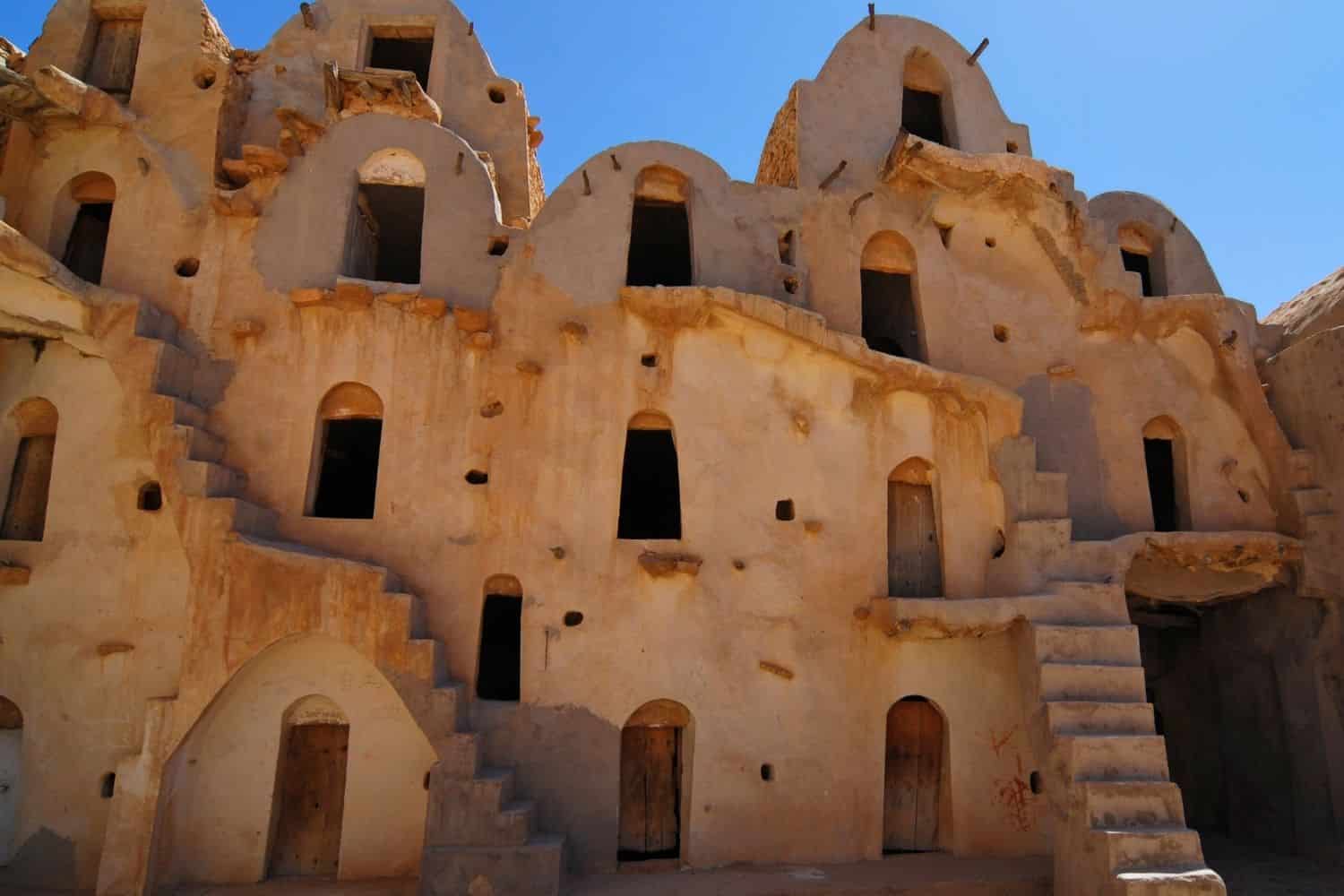Table of Contents
Immerse yourself in Tunisia culture as we offer you a comprehensive understanding of the customs of Tunisia, with its rich and diverse heritage, including traditions, values, and unique customs and practices.
Tunisians place a great emphasis on hospitality, warmly welcoming guests. Family holds a central place in Tunisian society, characterized by strong bonds and a strong sense of community. It’s essential to acknowledge that Tunisia culture continues to evolve, influenced by historical events, regional dynamics, and global interactions.
Gaining insight into the culture of Tunisia can provide valuable knowledge about the intricate and diverse society of the country.
Tunisia Culture
Here are the most important points to begin learning about Tunisia culture and customs:
- Ethnic Diversity: Tunisia boasts a diverse mix of ethnic groups, each with its own customs and traditions. Arabs, Berbers, and Turks are some of the major ethnic communities in the country.
- Languages: Arabic is the official language in Tunisia, but French is also widely spoken and used in business and education. Additionally, various regional dialects are prevalent.
- Islamic Practices: Tunisia is predominantly a Muslim country, and Islam plays a significant role in Tunisia culture, influencing daily life, values, and societal norms. This includes regular prayers, fasting during Ramadan, and adherence to Islamic dietary laws. Most Tunisians practice Sunni Islam.
- Greeting Etiquette: Greetings hold importance in Tunisia culture. Handshakes are common between men, while men and women usually do not shake hands. Instead, they often exchange verbal greetings with polite phrases.
- Traditional Clothing: Traditional Tunisian clothing, such as the “djellaba” for men and various styles of dresses for women, is still worn, particularly in rural areas. Traditional attire can vary by region and ethnicity.
- Cuisine: Tunisian cuisine features dishes like couscous, tajine, and various seafood specialties. It reflects a blend of Mediterranean, Arab, and Berber flavors.
- Hospitality: Tunisians are known for their warm hospitality. Guests are typically offered tea or coffee, and it is customary to be generous and welcoming when hosting visitors.
- Respect for Elders: Respect for elders is deeply rooted in Tunisian customs. Younger individuals show deference to their seniors through words and actions.
- Arts and Crafts: Tunisia has a rich tradition of arts and crafts, including intricate ceramics, textiles, and traditional pottery.
- Music and Dance: Traditional Tunisian music includes instruments like the “oud” and “darbuka.” Folk dances, such as the “stambali” and “mezwed,” are integral to cultural celebrations.
- Celebration of Festivals: Tunisians celebrate various religious and cultural festivals, including Eid al-Fitr, Eid al-Adha, and the Islamic New Year. These celebrations often involve special prayers, feasts, and gatherings with family and friends.
- Family and Community: Family is at the core of Tunisian society, and close-knit community bonds are crucial for support and social cohesion.
- Gender Roles: Traditional gender roles exist in Tunisia, but changes are occurring, particularly in urban areas, where women are gaining more independence and pursuing careers.
- Marriage Customs: Marriage customs vary, with both arranged and love marriages being common. Families often play a role in matchmaking, and weddings are elaborate affairs.
- Modern Influences: Tunisia culture is evolving, influenced by modernization and globalization, while still preserving its rich historical traditions.
These customs are vital elements of Tunisia culture and are readily observed in daily life, reflecting the country’s diverse cultural heritage and the importance of tradition, family, and community.
Tunisia Traditional Attire
Tunisia traditional attire reflects the nation’s diverse cultural heritage, historical influences, and regional distinctions. The clothing worn by Tunisians holds both functional purposes and cultural significance, showcasing the unique identity of the wearers.
1. Regional Variation: Traditional clothing in Tunisia varies across regions due to climate, lifestyle, and cultural differences. Coastal areas may favor lighter attire, while inland and mountainous regions opt for heavier and more layered garments.
2. Tunisian Djebba: The traditional attire for men in Tunisia is the “djebba,” a long robe-like garment often worn with a matching hat or head covering. The fabric and design of the djebba can vary based on the region and occasion. Women also wear variations of the djebba, sometimes incorporating colorful embroidery and beadwork.
3. Berber Influence: In some regions with a strong Berber heritage, individuals may wear distinctive clothing items like the “fouta” (a wraparound skirt) for men and embroidered dresses for women. These garments often feature intricate geometric patterns.
4. Rural and Nomadic Dress: Rural communities and nomadic groups in Tunisia maintain their unique traditional attire, which reflects their way of life. Nomadic communities may wear practical, durable clothing suited for the desert environment, often adorned with tribal jewelry and accessories.
5. Modesty and Cultural Symbolism: Traditional Tunisian clothing emphasizes modesty, with loose-fitting and flowing garments. Colors, fabrics, and embellishments can convey cultural or regional meanings, and attire may signify one’s social status or marital status.
6. Special Occasion Attire: Tunisians dress elaborately for special events, religious ceremonies, and celebrations. These occasions offer the opportunity to showcase finely crafted and ornate traditional clothing, often featuring intricate embroidery and decorative elements.
7. Modern Influences: While traditional attire remains significant, urbanization and globalization have led to the adoption of Western clothing in urban areas like Tunis. Many Tunisians today blend traditional and modern clothing, adapting to changing lifestyles and fashion trends.
Tunisia traditional attire is a vibrant representation of the nation’s cultural diversity and historical roots. It serves as a visual manifestation of the rich tapestry of traditions that have influenced Tunisian society over time.
Tunisia Marriage Traditions
Tunisia marriage traditions are deeply rooted in the country’s rich cultural and religious heritage, with variations across different regions and ethnic groups. These traditions hold a special place in Tunisian society, blending historical practices with contemporary influences.
1. Arranged Marriages: Arranged marriages have been common in Tunisia, where families play a pivotal role in selecting suitable partners for their children. These marriages are often seen as a means to preserve cultural and social ties and ensure compatibility between families.
2. Matchmakers: Matchmakers, known as “khatbane” in Arabic, have traditionally played a role in finding compatible matches for individuals. They consider factors such as family background, social status, and compatibility when suggesting potential partners.
3. Engagement: The engagement process in Tunisia involves a formal agreement between the families, known as “khitbah” or “khitbah.” This agreement signifies the commitment of the couple to marry.
4. Wedding Celebrations: Tunisian weddings are joyous and elaborate affairs that typically span several days. They often include traditional customs, feasting, music, and dancing. The main wedding ceremony involves the signing of the marriage contract and may take place in a mosque or at home.
5. Bridal Attire: Tunisian brides traditionally wear elegant and intricately embroidered dresses, often accompanied by ornate jewelry. The style of bridal attire may vary by region and ethnic group.
6. Dowry (Mahr): The groom may offer a dowry, known as “mahr,” to the bride as a symbol of commitment and financial security. The size and form of the mahr can vary depending on the families and regions involved.
7. Post-Wedding Customs: After the wedding, various customs and celebrations may continue, including a festive banquet hosted by the groom’s family, known as the “Ftourek.”
8. Religious Significance: Marriage in Tunisia is not only a social contract but also a religious sacrament, often conducted according to Islamic principles. The marriage contract, known as the “nikah,” may involve the recitation of Quranic verses.
9. Family and Community Involvement: Tunisian weddings are communal celebrations, involving extended families and the broader community. The support and participation of relatives and friends are essential aspects of these events.
10. Modern Changes: In contemporary Tunisia, there is a growing trend toward love marriages, where individuals choose their partners based on personal preferences. These unions may incorporate some traditional customs and ceremonies.
Tunisia’s marriage traditions reflect the significance of family, community, and cultural identity in Tunisian society. While some practices have evolved over time, they continue to play a vital role in preserving the country’s cultural heritage and strengthening social bonds.
Tunisia Food Culture
Tunisia food culture is a vibrant tapestry of flavors and culinary traditions influenced by its Mediterranean location, North African heritage, and historical interactions with various cultures.
- Regional Variation: Food from Tunisia diverse geography, encompassing coastal plains, arid deserts, and fertile hinterlands, has led to a wide range of regional cuisines. Each area integrates local ingredients and culinary traditions, resulting in a rich tapestry of flavors distinctive to each region.
- Harissa: Harissa, a spicy chili paste made from red peppers and garlic, is a quintessential flavor in Tunisian cuisine. It adds heat and depth to many dishes.
- Couscous: Couscous is a cherished staple in Tunisian cuisine and is often served as a base for flavorful stews. “Couscous” is also the name of a traditional Tunisian dish prepared with steamed semolina wheat granules.
- Tagine: Tunisian tagine dishes are slow-cooked stews typically made with lamb, chicken, or seafood, often featuring a mix of vegetables and aromatic spices.
- Brik: Brik is a popular Tunisian snack consisting of a thin pastry filled with ingredients like egg, tuna, capers, and harissa. It is deep-fried until crispy.
- Tunisian Bread: Bread is a fundamental part of Tunisian meals. Traditional bread varieties include “khobz tabouna,” a wood-fired oven-baked bread, and “baguette Tunisienne,” a French-style baguette.
- Olives and Olive Oil: Tunisia is one of the world’s largest producers of olives and olive oil, and they are integral to Tunisian cuisine. Olives are served as appetizers, and olive oil is used in cooking and drizzled over salads.
- Mint Tea: Like many North African countries, Tunisia has a tradition of serving mint tea. It is a fragrant and refreshing beverage, often sweetened with sugar.
- Sweets and Pastries: Tunisian desserts are known for their use of almonds, honey, and rosewater. Popular treats include “makroudh” (date-filled pastries) and “bamya” (almond cookies).
- Street Food: Street food vendors are common in Tunisian cities, offering snacks like “fricassé” (spicy fried sandwiches) and “malsouqa” (stuffed pancakes).
- Social Dining: Tunisian meals are often a communal affair, with families and friends gathering to share dishes. Hospitality is highly valued, and guests are typically served generous portions.
- Influence of Berber, Arab, and French Cultures: Tunisia’s history and diverse cultural influences have shaped its cuisine. Berber traditions, Arab flavors, and French culinary techniques have all contributed to the rich and varied food culture.
Book our services
These guiding services ensure that your journey is not only enjoyable but also informative and hassle-free. Tunisia’s cultural delights, historical marvels, and natural wonders await your exploration with RJ Travel LLC. Our Tunisia Private Tours are designed to immerse you in the rich cultural heritage, historical significance, and breathtaking landscapes of this extraordinary nation.
Contact Us and our team will make sure to help you plan your trip to Tunisia when it’s safe and ready for travel. Whether you’re interested in joining a pre-arranged Tunisia small group tour or creating a custom itinerary, we are here to make your Tunisian adventure an unforgettable reality.
Book Your Trip to Tunisia Today!
Embark on an unforgettable journey and explore the allure of Tunisia through our exclusive tours.





